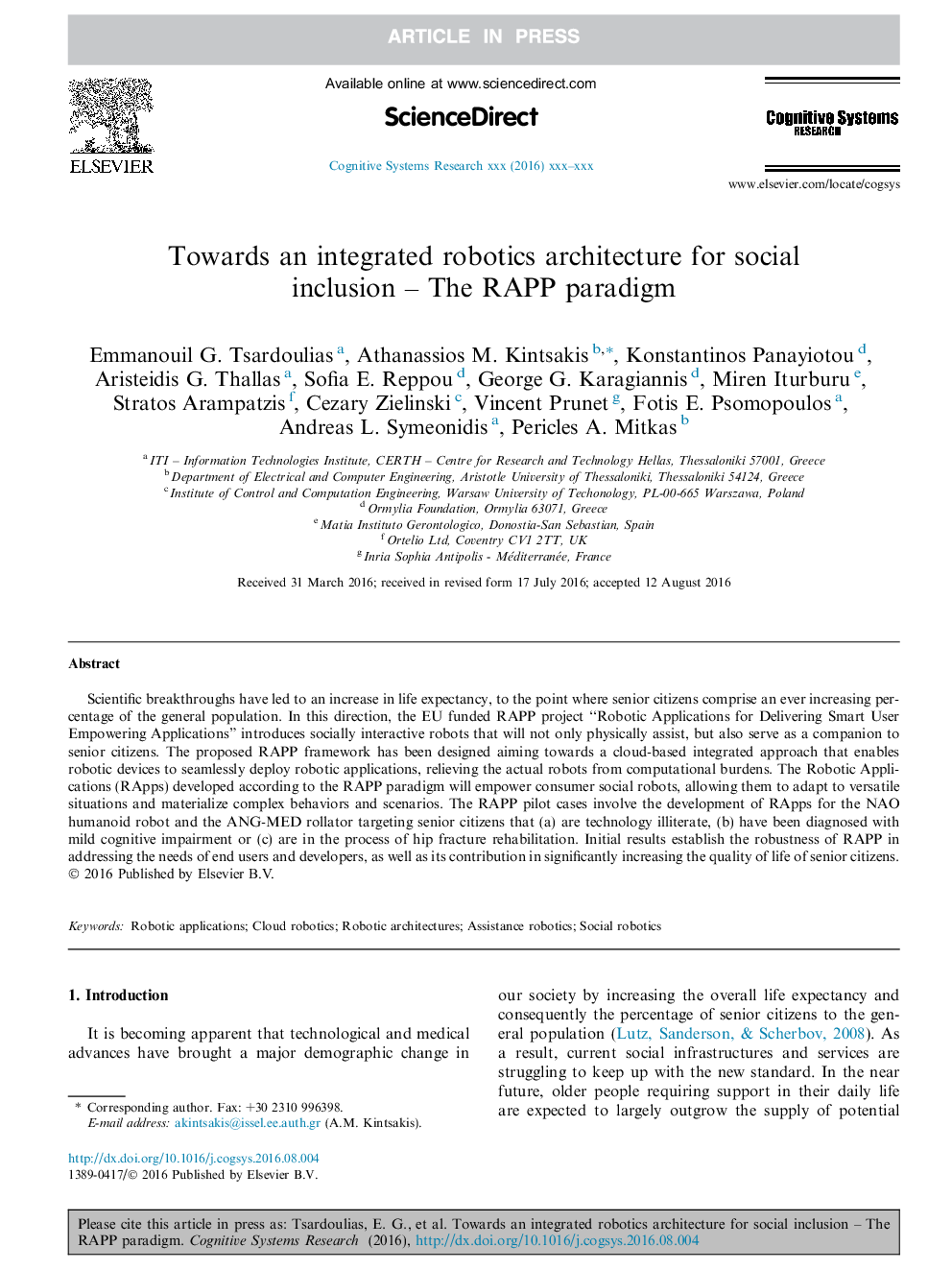| کد مقاله | کد نشریه | سال انتشار | مقاله انگلیسی | نسخه تمام متن |
|---|---|---|---|---|
| 4942356 | 1437250 | 2017 | 17 صفحه PDF | دانلود رایگان |
عنوان انگلیسی مقاله ISI
Towards an integrated robotics architecture for social inclusion - The RAPP paradigm
دانلود مقاله + سفارش ترجمه
دانلود مقاله ISI انگلیسی
رایگان برای ایرانیان
موضوعات مرتبط
مهندسی و علوم پایه
مهندسی کامپیوتر
هوش مصنوعی
پیش نمایش صفحه اول مقاله

چکیده انگلیسی
Scientific breakthroughs have led to an increase in life expectancy, to the point where senior citizens comprise an ever increasing percentage of the general population. In this direction, the EU funded RAPP project “Robotic Applications for Delivering Smart User Empowering Applications” introduces socially interactive robots that will not only physically assist, but also serve as a companion to senior citizens. The proposed RAPP framework has been designed aiming towards a cloud-based integrated approach that enables robotic devices to seamlessly deploy robotic applications, relieving the actual robots from computational burdens. The Robotic Applications (RApps) developed according to the RAPP paradigm will empower consumer social robots, allowing them to adapt to versatile situations and materialize complex behaviors and scenarios. The RAPP pilot cases involve the development of RApps for the NAO humanoid robot and the ANG-MED rollator targeting senior citizens that (a) are technology illiterate, (b) have been diagnosed with mild cognitive impairment or (c) are in the process of hip fracture rehabilitation. Initial results establish the robustness of RAPP in addressing the needs of end users and developers, as well as its contribution in significantly increasing the quality of life of senior citizens.
ناشر
Database: Elsevier - ScienceDirect (ساینس دایرکت)
Journal: Cognitive Systems Research - Volume 43, June 2017, Pages 157-173
Journal: Cognitive Systems Research - Volume 43, June 2017, Pages 157-173
نویسندگان
Emmanouil G. Tsardoulias, Athanassios M. Kintsakis, Konstantinos Panayiotou, Aristeidis G. Thallas, Sofia E. Reppou, George G. Karagiannis, Miren Iturburu, Stratos Arampatzis, Cezary Zielinski, Vincent Prunet, Fotis E. Psomopoulos, Andreas L. Symeonidis,